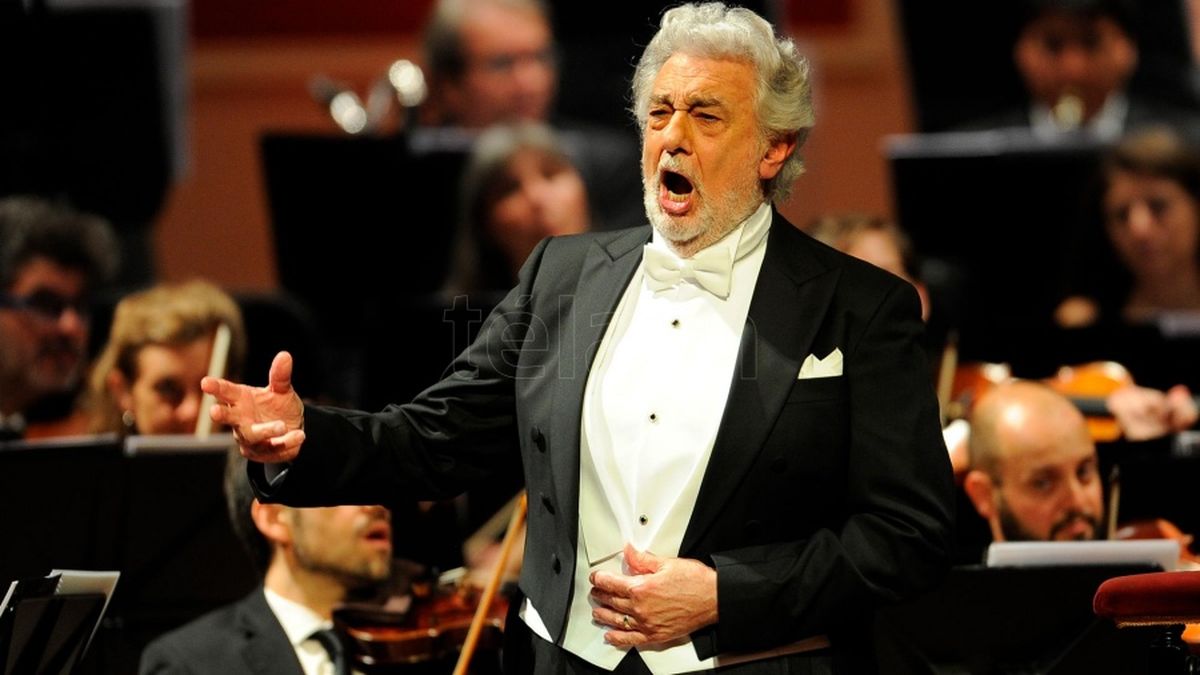That year several lyrical singers narrated different situations of long-standing abuse by the tenor, who according to the stories took advantage of his reputation for it.
Although the complaints never reached the courts, Domingo received a conviction from the United States Opera Musicians Union and had to resign from the direction of the Los Angeles Opera, in October 2019, after 16 years in that position.
Neither the complaints nor the suspicions made a dent in the Colón public, who, before the first appearance of the musician born 81 years ago in Madrid, gave him a strong and heartfelt applause, marking the field from the beginning, siding with the lyrical singer and far from the complaints, now silenced, but that marked him with fire in previous years.
The intact love for @PlacidoDomingo @TeatroColon.mp4
Domingo appeared in Buenos Aires together with the Uruguayan lyrical singer Mary Joseph Siri and accompanied by the Colon Stable Orchestra under the direction of the Spanish jordi bernacer in a program of solo and duet arias and instrumental musical intermissions that are very pleasant, clean, worked with delicacy and without exaltations, although with depth and fiber.
Among them, the beautiful violin solo by concertmaster Freddy Varela Montero in “Meditación”, a fragment of the opera “Thais” by Jules Massenet.
The concert began with the opening of “I vespri siciliani” by Giuseppe Verdi and continued with the moving entrance of the tenor and baritone for the aria “Nemico delia patria” from the opera “Andrea Chénier” by Umberto Giordano (1867-1948) and he continued with the substantial and tragic “La mamma morta” from the same opera, in this case by María José Siri.
After this, a musical intermission and later tenor and soprano performed the duet of the aria “Madamigielia Valery” from “la Traviata”, also by Verdi.
The second part of the concert began with a beautiful instrumental interpretation of Berlioz’s “Le Corsair” overture and then repeated the scheme, with Domingo singing the aria “O vin, dissipe la tristesse”, from Ambroise Thomas’s “Hamlet” (1811-1896 ) to follow up with Siri in “Pleurez pleurez, me yeux” from “El Cid” by Jules Massenet (1842-1912).
Then came the “Meditation” with the pleasant highlight of the concertmaster and closed the official program with the duet aria “Udiste?… Mira, d’acerbe” from “Il Trovatore” by Verdi (!813-1901), with brilliance Siri special.
In the encores, generated by the effervescence of the public, something particular was also seen and it was the singing in Spanish and zarzuela by the two singers, where Domingo stood out first, then it was Siri’s turn and a joint closing with the duet popular “The Wildcat”.
Under this vein more linked to popular song, to Spain and to simple feelings, Plácido Domingo had, perhaps, the best performance of the night.
Then came the closing, with a guitar, two bandoneons and an orchestra of “Volver”, a song by Gardel and Le Pera that put the finishing touch to a night where the public decided to side with the crack that MeToo opened and pay tribute to their love for the singer without paying attention to the complaints that corroded his image.
Source: Ambito
David William is a talented author who has made a name for himself in the world of writing. He is a professional author who writes on a wide range of topics, from general interest to opinion news. David is currently working as a writer at 24 hours worlds where he brings his unique perspective and in-depth research to his articles, making them both informative and engaging.




